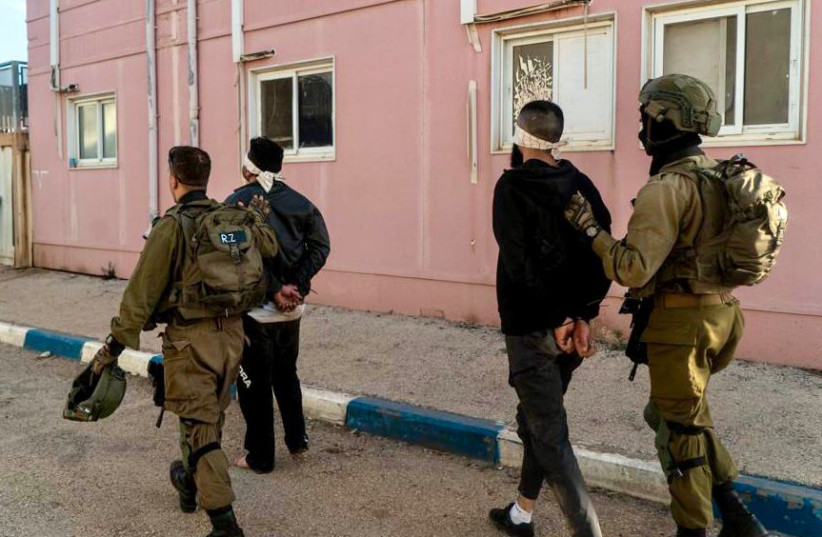A scathing report issued by State Comptroller Matanyahu Englman on Tuesday found that the IDF and Defense Ministry abandoned construction of the West Bank security barrier under Benjamin Netanyahu’s premiership in 2017.
As military affairs correspondent Yonah Jeremy Bob has reported, quoting IDF sources, the incomplete parts of the barrier are not due to be finished until late this year, if not in 2024, leaving the country under-defended for the foreseeable future.
The history of the barrier is a sad story of how the security and political establishment abandoned a vital security project. The decision to erect it was made by Ariel Sharon’s government in June 2002, three months after the Passover massacre at the Park Hotel in Netanya where 30 civilians were murdered and 140 injured. The barrier, then called the security fence, was built following a wave of Palestinian terrorist attacks during the Second Intifada, which began in September 2000 and ended in February 2005.
Government approval for the construction of the barrier came on June 23, 2002, and work began about a month later. Running a total length of more than 700 kilometers (about 440 miles), 15% of the barrier runs along the Green Line or inside Israel, and the remaining 85% inside Judea and Samaria (the West Bank).
Does the barrier really reduce terrorist attacks?
Military statistics show that it significantly reduced the number of attacks by Palestinian terrorists. For example, suicide bombings dropped more than 80%, from 73 between 2000 and July 2003 (the completion of the first continuous segment) to 12 between August 2003 and the end of 2006.

According to the State Comptroller’s Report, the IDF decided in 2017 that threats from Iran, Hezbollah, Hamas, ISIS and Syria were all bigger ones than West Bank terrorism. The result of this shift in focus was that by 2021, some 1.4 million Palestinians were illegally infiltrating Israel per year, reaching levels of 6,000 infiltrations over 24 hours.
The report states further that the IDF and Defense Ministry’s 2017 decision to cease fixing parts of the barrier when they were vandalized or destroyed by Palestinians led to the barrier’s effectiveness plummeting from being 92% functional in 2018 to a mere 52% by the end of 2021.
The change came last March, when 11 Israelis were killed in terrorist attacks within a short period of time, and in Bob’s words, “everyone woke up and realized that around 50% of the existing West Bank security barrier needed to be rebuilt or fixed, that more patrolling was needed on the border, that expensive electronic surveillance needed to be installed and that certain portions of the wall that were never completed needed to be finished.”
He quotes IDF sources as saying that during the course of 2022, large additional resources from the military budget helped to complete significant unfinished parts of the barrier and fixed others that Palestinians had damaged. In fact, in 2022 – some 20 years after it was erected – 45 km. of the barrier that had been built as a multi-layered fence were replaced by a massive nine-meter high concrete wall. But, according to Bob, this began to show results only after the 2022 wave of terrorist attacks had begun.
Although the barrier has been a favorite target of Israel’s critics, some of whom call it “the apartheid wall,” there is no doubt in the minds of most Israeli security officials that it has been effective in preventing terrorist attacks in the Jewish state for more than two decades.
As we witness what appears to be an upswing in Palestinian terror, now is the time to expedite the completion of the barrier. At the same time, a much-needed bypass road for Israelis who have to drive through the West Bank village of Huwara should be built. Plans for the road have been on the drawing table for years, but they have never been implemented.
Two Israeli brothers from Har Bracha – Hillel Menachem Yaniv, 21, and Yagel Ya’acov Yaniv, 19 – were shot dead from close range in a terrorist shooting on their car as they were driving through Huwara Sunday on Route 60.
Israelis driving on this road say that they feel like “sitting ducks.” In memory of the Yaniv brothers and to prevent further casualties, the government should approve the Huwara bypass road as soon as possible.
